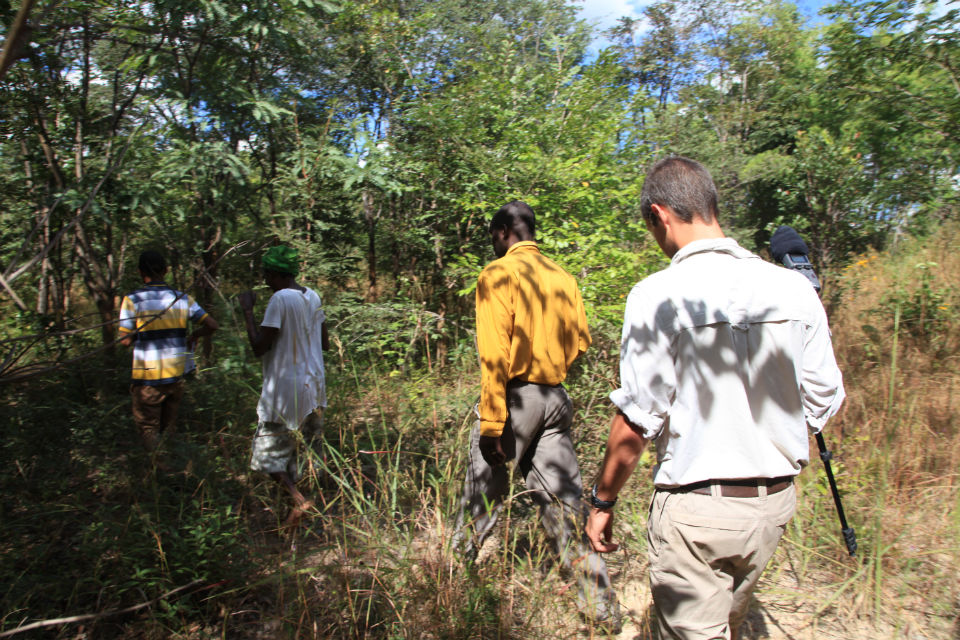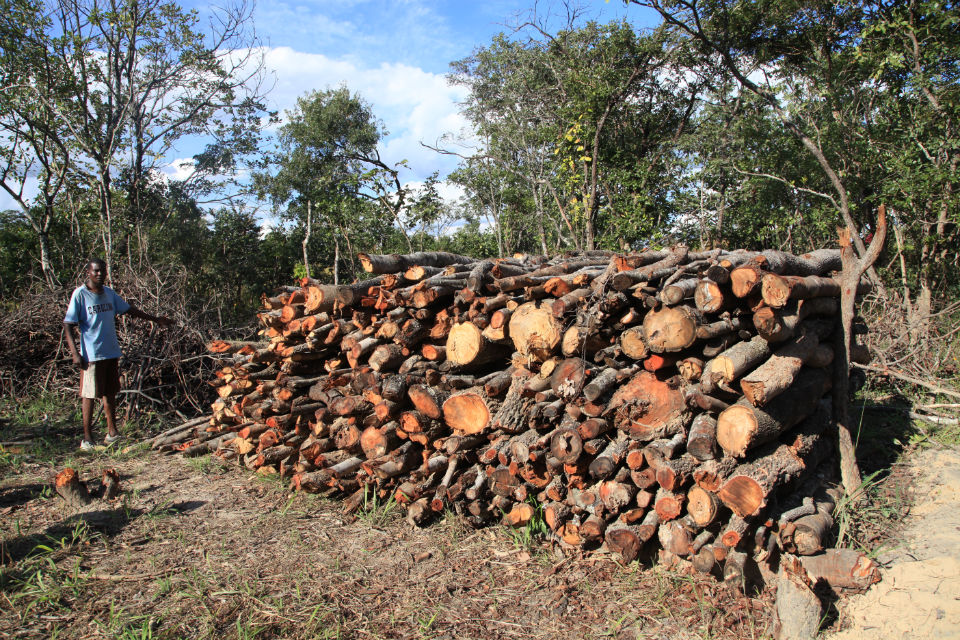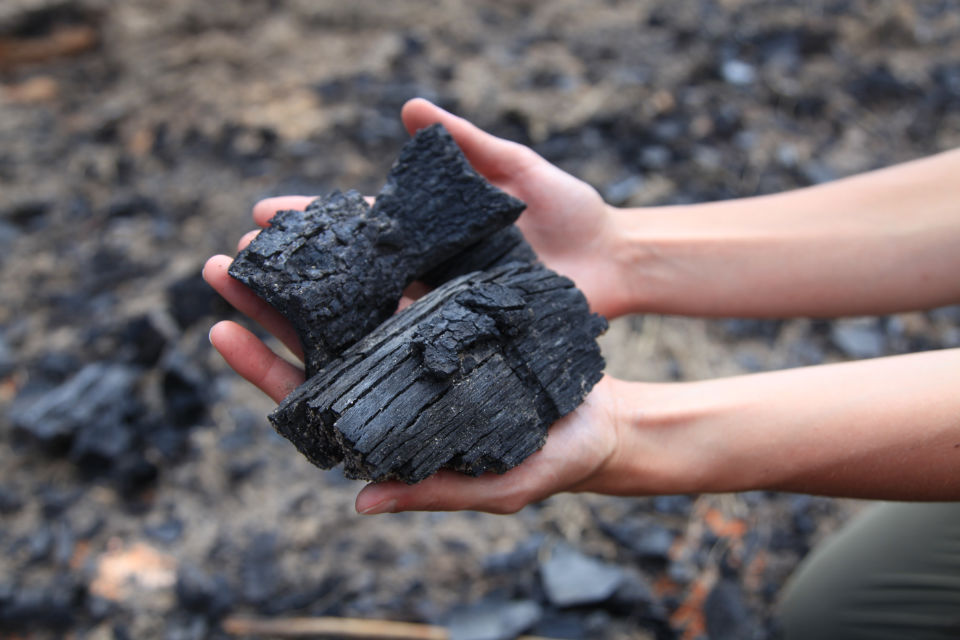Tackling deforestation in Northern Zambia with WeForest
This article is part of series commissioned and published by Tentsile. It follows our overland journey across Southern Africa in search of inspiring and positive conservation stories. You can read the original article on the Tentsile blog, or catch up on the whole series.
The Copperbelt
Tentsile are rightly proud of their commitment to forest conservation, with money from every sale being channeled towards schemes across Africa and the world. But what do these conservation projects look like on the ground, and how do we know if they’re working?
I chatted with Tentsile CEO, Alex Shirley-Smith, about this in chilly November whilst testing out tents, and he was very keen that the Tentsile community learns more about the projects that they’re supporting. So as a part of our journey across Southern Africa (catch up on the first and second installments), Tentsile sent me up to Zambia’s Copperbelt province, high up on the border with the Congo, to check out one of these projects firsthand.
We trundled North from the Zambian capital Lusaka along 400km of tar. It was a slow tedious journey, in which we invariably spent most of our time sandwiched between great convoys of haulage trucks ferrying oil and raw materials to and from the DRC. Dotted along lay-bys were typical African markets selling sweet potato, groundnuts and tomatoes, as well as great stacks of jet black charcoal, a very visible sign of Zambia’s malignant deforestation syndrome.

Restoration from the root(stock) up
Half way between the towns of Ndola and Kitwe a sun-bleached sign read ‘Rainlands Timber’ and sent us down a country lane surrounded by fields of freshly baled hay. We could have been in rural England, let alone tropical Africa! We emerged into a yard strewn with ancient trucks, belching machinery and piles of timber. Perched above the yard, up steep wooden steps was the local office for WeForest, the charity we have traveled all this way to meet.
There to greet us were Morton and James, two softly spoken Zambians who are WeForest’s men on the ground, the educators and changemakers. What WeForest propose is threefold; First, farmers must commit to not using or making charcoal – the chief driver of deforestation here in Zambia. Second, they help the farmers map out a portion of their land for regeneration. Third, and in return, the farmers receive training on how to manage this forest both for small scale sustainable timber and also for sustainable firewood.
So far, so simple – but the beauty of the project is in the details. When I think of forest conservation, what often springs to mind is tray upon tray of neatly propagated seedlings and the laborious work of planting them out. But this kind of conservation is only a fraction of the WeForest vision here in Zambia. From experience, they found that young plants were dying nearly 80% of the time. What works far better is to restore forests from existing root stock – that means not felling the trees for charcoal, but instead harvesting branches – thereby giving forest conservation a jump start. By gathering branches the farmers can not only harvest wood for fuel, but it also regenerates faster as the living tree, complete with rootstock remains intact. This approach is far more efficient than waiting for a seedling to mature into a full-grown tree all over again. In the long term, this also produces long straight trunks, which can be sustainably harvested for high value hardwood timber.

Beatrice shows us the way
Beatrice illustrated how small branches could be broken off to power her fuel efficient stove – a partner project that is also helping to mediate the transition from charcoal. She proudly showed us her tender and young orange tree that had been supplied by the project, too. Citrus fruits are expensive in the local villages and so by providing women with fruit trees and the skills to cultivate them, they hope that this can be used as an additional source of income for local farmers, helping to replace the income that would have been earned from charcoal production.
Just as a thoroughly positive day was drawing to a close, Morton and James spotted a clearing through the trees. Clambering through the undergrowth, closer inspection revealed several dozen roughly cut stumps. Scattered piles of hastily discarded branches, many still with wilting leaves, signaled that the activity had been recent. Center stage was a large charred oval, at least ten meters across. Fragments of charcoal crunched under foot like shattered glass, as we picked our way across. Morton explained that this was the remains of a hune – the process by which charcoal is made. This land, he said, belonged to Beatrice’s neighbour, a farmer that had not joined the WeForest project. All across Zambia, charcoal is still being made at an alarming rate, and this, as it turned out, relatively small hune, highlighted to us what a challenge it will be to create behaviour change amongst farmers. WeForest certainly have their work cut out.

A sting in the tale
Complete with an armful of groundnuts, a gift from Beatrice, we headed back to WeForest HQ whilst Morton and James explained the last critically important piece to this jigsaw. Unexpectedly, it comes in the form of deadly carbon monoxide – Zambia’s hidden killer. Tragically, national life expectancy currently languishes at a mere 53.5 years for women. A key driver of this mortality is charcoal, as women spend much of their time in poorly ventilated huts with smoldering stoves churning out this poisonous gas. In fact, pneumonial disease is the third most common cause of death after HIV and strokes. So it turns out that the battle against deforestation isn’t just for conservation, it’s for public health and the economy too.
So having seen the challenges firsthand, one has to wonder what the future holds for Zambia. Behavior change is a long, slow process, and the path is rarely easy. The WeForest team has the skills, strategies and knowledge; all they need to be successful is your support, and time.
– – – –
P.S. A big thank you to Tentsile for supporting this journey, to WeForest for welcoming us so enthusiastically to hear about your work, and Beatrice for the groundnuts.
This is part four of the Tentsile Africa Overland Series, read more, here.


